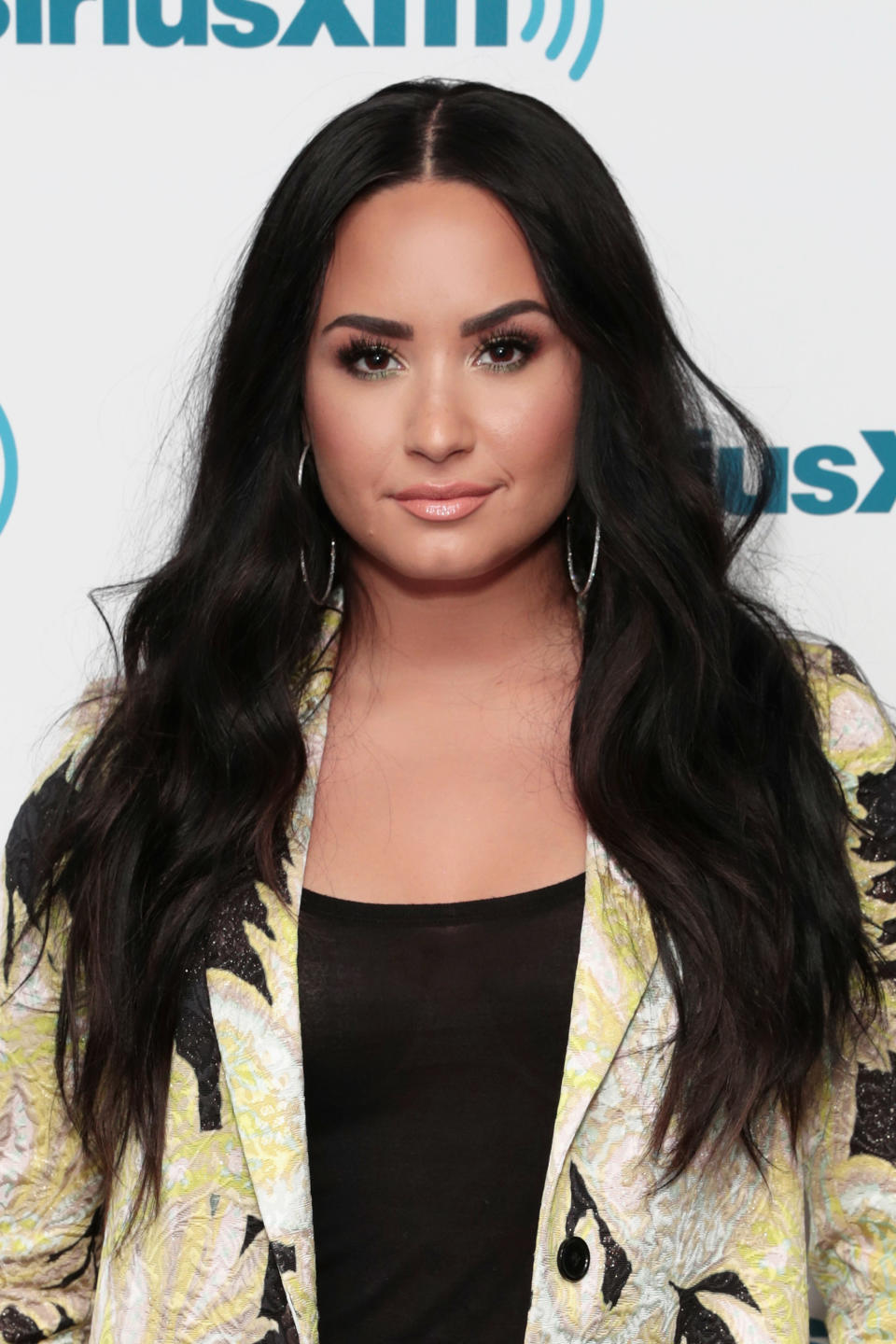Why celebrities talking about mental health is so important

In an interview with People that hits newsstands on Friday, singer Mariah Carey reveals she was diagnosed with bipolar disorder in 2001.
Carey spoke publicly for the first time about living with bipolar II disorder, a condition in which a person experiences periods of depression, followed by periods of hypomania in which the person can become irritable and hyperactive. Although it’s been 17 years since Carey was admitted to hospital for having a physical and mental breakdown, she admits she wasn’t ready to come forward because of the stigma that persists surrounding mental illness.
“Until recently I lived in denial and isolation and in constant fear someone would expose me,” Carey told People. “It was too heavy a burden to carry and I simply couldn’t do that anymore. I sought and received treatment, I put positive people around me and I got back to doing what I love — writing songs and making music.”
Carey is the latest in a growing list of celebrities who are speaking candidly about their mental health struggles. Demi Lovato, Dwayne “The Rock” Johnson and model Chrissy Teigen have all spoken publicly about their own issues in an effort to share initiate conversations and spread awareness about the legitimacy and severity of mental illness – and I couldn’t be happier.
ALSO SEE: Mariah Carey reveals her battle with bipolar disorder
I first heard about bipolar disorder when I was 9. My father had recently been diagnosed and was experiencing the first severe depressive state that I could remember. I was told that my father being sick was something my sister and I weren’t to discuss with extended family or friends — it was a secret that we kept confined to our home.
When I was a teenager, it was my turn to experience the stigma and shame associated with mental illness. I was diagnosed with severe depression that accompanied an eating disorder when I was 15. I was put on medication and my name was added to a seven-month long wait list for a mental health program at the local hospital. I was too ashamed to tell my friends, although they could all see through my behaviour that I had changed. I kept my illness a secret until I was well into my 20s when I suffered a relapse in my eating disorder and was desperate for help.

At the time of my diagnosis, mental health was still a taboo subject. I grew up without celebrities on magazine covers talking about mental illness or a Bell Let’s Talk campaign raising funds for mental health care initiatives. For me, seeing people like Mariah Carey, Kendrick Lamar and Kesha speak so openly and courageously makes me think of the people who are still keeping their struggles a secret, and who are too scared to seek help. Living with mental illness can be so isolating, that for some people, Mariah Carey may be the only person they know who also has bipolar disorder. That small connection that’s created by knowing there’s someone else like you, is the first step towards breaking the stigma, overcoming fear and working towards seeking treatment.
ALSO SEE: Demi Lovato inspired mom to get help for mental illness
In her interview, Carey spoke about the positive effects therapy and medication have had in managing her illness.
“I’m actually taking medication that seems to be pretty good,” Carey said. “It’s not making me feel too tired or sluggish or anything like that. Finding the proper balance is what is most important.”
Carey’s language describing taking medication is important. While there is often shame associated with taking medication, many people who live with bipolar disorder, depression and other forms of mental illness know there is also fear associated in taking and changing medications due to the onslaught of possible side effects. It can be a long process of trial and error to find a medication and dosage that works for you — and that’s if you can afford it.
While celebrities like Carey have the financial means to seek private medical treatment, many people around the world cannot afford to do the same. The lack of accessible, affordable and consistent mental healthcare is a critical factor in preventing those in need from receiving treatment.

For Canadians who seek help for mental illness, the treatment is often costly and incomplete. Prescription medication, although easily obtained through a doctor, can be costly for those without coverage to fill, and taking medication alone is often an incomplete treatment plan. Many people in need require a combination of medication and a form of therapy to manage mental illness. However, government-funded mental health programs have lengthy waitlists, and the lack of access to immediate care can sometimes have tragic consequences for those in need. Private treatment by a psychologist, psychotherapist or social worker is not covered by any province in Canada, meaning Canadians must make the difficult decision to pay out of pocket or go without. Those with coverage are often limited to a dollar figure per year that often won’t cover a fraction of the treatment necessary to result in any benefit to the person in need.
Like many Canadians are forced to do, I pay out of pocket for private therapy and medication. Thanks to the growing number of influential people in the media, like Mariah Carey, I feel encouraged to have open and honest discussions about not my own struggles but also the need for increased government spending on mental health. It gives me hope that people younger than me are growing up in an environment where they are no longer feel forced to keep things like mental health a secret. I applaud Carey for freeing herself from the burden of stigma — this is not only how real change begins, but how it continues.
Let us know what you think by commenting below and tweeting @YahooStyleCA! Follow us on Twitter and Instagram.



